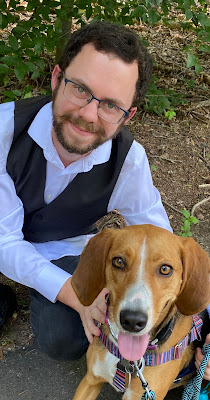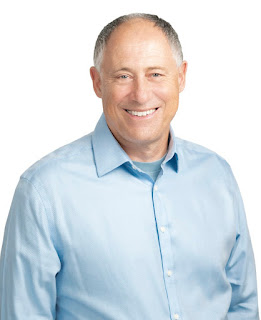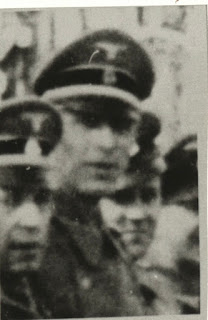AJ Sam, born and raised in St. Petersburg, FL, is a recently retired public- school teacher in Volusia County, FL. A 4-year U.S. Air Force veteran (1975-1980), he graduated from St. Petersburg Jr. College and worked in the Engineering and Computer fields through the ‘80s and into the 90s. In 1997, he accepted a calling from God, returned to college, and earned an Education degree (Special Education) from University of South Florida. This began his 20+ year career in Education in Pinellas, Hillsborough, and Volusia County (FL) schools.
In 2003, he again accepted God’s call – this time to the ministry - and was ordained in 2007. A sports fan – Tampa Bay Bucs, Rays & Lightning - he enjoys watching and attending games. He’s married and lives in Riverview, FL. He has a daughter, son-in-law, and granddaughter.
An avid history buff, his writing attests to this fact with his attention to the details of the historical events, facts, and characters he weaves throughout his fiction. As an author of historical fiction, AJ Sam believes in the necessity of studying the past - but not repeating the past - instead learning from the past to insure a brighter future for humanity. Website https://theajsam.com/
1. How and when did you get hooked on history?
I became interested in history when a neighbor gifted a set of Brittanica Encyclopedias to my family when I was about 8 years old. I learned about history, geography, climate, socio-economic, and geo-political concepts. It became more than just academic to me when, as an African American growing up in the segregated 1960s USA, I discovered the history being shown was neither accurate nor complete in literature, TV, or Hollywood.
2. What role does history play or has it played in your personal life?
As I learned the history of African Americans – the good, the bad, and the ugly – I discovered despite obstacles that was and are thrown at us, my people didn’t and won’t allow it to hinder us from fulfilling our purpose. In the beginning of my book, A Journey Far: Ibere, I quote from Ecclesiastes 1:9-11History merely repeats itself. It has all been done before. Nothing under the sun is truly new. Sometimes people say, “Here is something new!” But actually, it is old; nothing is ever truly new. We don’t remember what happened in the past, and in future generations, no one will remember what we are doing now. People have been trying to control people since the dawn of time. The mistakes that were made before King Solomon’s time continued to be made after his time. They were made during Jesus’ time here on Earth. They were made in the Middle Ages, the Renaissance, and the Industrial Age worldwide. They were made in the 17th, through the 20th centuries in America. And the same mistakes are happening today, August 17, 2023. Nothing that’s happening now is new under the sun or the Son.
3. How does history play a part of your professional life/career?
I accepted God’s calling to go to the Public School system and teach at-risk students in my community after spending the first part of my adult life pursuing dollar bills and acclaims of man. It wasn’t a choice I would’ve made, but I’ve been totally fulfilled by teaching young minds. Despite making less money, trying to reach challenging students, and navigating through educational policies that strained my sense of reason it has been a joy. As far as history goes, it shows us that when some person, group, or government wanted to control another – the first thing they did was try to limit educational opportunities. Then they tried to limit their knowledge of themselves and their culture – yes, their history. During my 23-year teaching career, I attempted to share the history of us – all of us, whenever I could, and with whoever I could.
4. Why is studying/knowing history important?
Those who do not learn from history are doomed to repeat it. (either George Santayana, EdmundBurke, or Winston Churchill said it)
5. What is your favorite period or aspect of history to learn about and why?
First, I would change the words “your favorite”, to “the most necessary” in your question. So, now I’ll answer this question . . . What is THE MOST NECESSARY period or aspect of history to learn about and why? It would be from 1945 to 1970. It was a societal upheaval like never before. The USA came out of WWII as a world power. Except for Pearl Harbor, HI, the country had survived unscathed. The economy was booming. Hope sprung eternal. The country’s future was so bright, we HAD to wear shades. Many of our young men had sacrificed “their all” in war. Men of color had proven their mettle on the battlefields of Europe, Asia, and the Pacific Ocean. Women had proven their ability back home in the industrial machine. But after Hiroshima, things went backwards. Despite all that was available, all that was sacrificed, many still didn’t want to share the power. The 1960s burst on the scene with JFK, MLK, Jr., Malcom X, and Muhammad Ali along with a consortium of young people, people of color, and women who dared to stop asking but instead demanded what was rightfully theirs. The blueprint they left for us can serve as our guide to build a better tomorrow. Nonviolent action, with an emphasis on both nonviolence AND action. This country had changed, we had changed, but Eccl. 1:9 reminds us that history repeats itself.

6. How did you become a writer of historical fiction?
It began as an assignment for my Reading Instruction coursework at the University of South Florida back in the late 90s. My 2-page, 463-word story about Harriet “Moses” Tubman rescuing a slave evolved into a 370-page, 112,611-word manuscript – which is the first book in the A Journey Far tetralogy. My journey in authoring this novel went from hopes of a money-making venture to an adventure of discovery of self. I am a better human being because of the journey and pray my readers have similar epiphanies.
7. What can readers expect from A Journey Far and upcoming books?
This novel is the first book in a tetralogy. All the books have the same title - A Journey Far, but different subtitles. The commonality of the subtitles, however, is the Yoruba language. I use this because the Yoruba language was the predominate language in the west-central region of Africa during the Middle Passage.
This first book - A Journey Far: Ibere, which is Yoruba for “Beginnings”, follows James, the protagonist, from six years of age to his early 20s. The second book in the series, A Journey Far: Okunrin, which is Yoruba for “A Man” follows James from his early 20s to his mid-20s. The third book in the series, A Journey Far: Ibọwọ, which is Yoruba for “Respect”, follows James from his mid-20s to his mid-30s. And the final book in the tetralogy, A Journey Far: Gbigba, which is Yoruba for “Acceptance”, follows James from his mid-30s on.
The A Journey Far tetralogy is not a history text. The history has been thoroughly researched and is placed within the timeline noted. The historical facts have been checked, double-checked, Wikipedia’ed, and Googled. The thread that ties them together is fiction. The characters have been fleshed out, developed, and have qualities that add to the narrative. The narrator stays out of the way, and allows the characters, geography, and events to drive the story. Indeed, several historical facts I thought I knew were revealed to me during my research (thank you Google), which caused me to alter the narrative on more than one occasion. For instance, I had James, the protagonist, reading the opening pages of Charles Dickens, A Tale of Two Cities aloud in the Master’s study. Well, I discovered just in time, that this Dickens novel wasn’t published until 1859, when James was in NYC. Well, I had him read another book in the Master’s study, and in a later part of A Journey Far: Ibere, I had him reference A Tale of Two Cities, as a current book.
A Journey Far tells the story of historical people and events through the eyes of everyday people far removed from the power structure. People who lived their lives amidst the backdrop of wars and rumors of wars - of radical changes in politics, social order, and industry. Most of my characters are not movers nor shakers, they’re not privy to the details of the country or the world. They are ordinary folks living through the most extraordinary time in the history of the United States of America.
A Journey Far: Ibere will be hurtful and humiliating to many. But it is a tale of survival, triumph, and vindication. Things you can't attain without the hurt and humiliation. It is also true to the history of this United States of America. A fact that is lost on some today.


.jpg)

.jpg)












.JPG)













